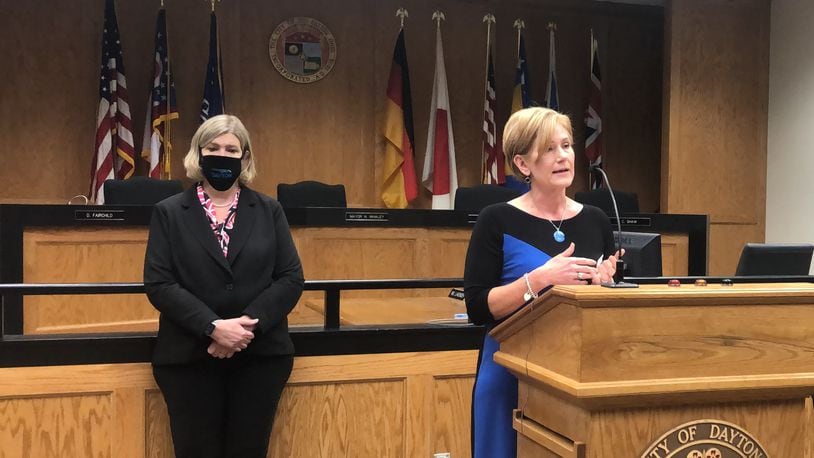Dayton has instituted a hiring freeze, offered a voluntary separation program, reduced capital investments, limited spending on contracts and materials and has taken other cost-cutting steps.
But many of the cuts are “one-time” budget solutions, and the city will not be able to maintain critical services in 2021 without federal funding support, said Diane Shannon, Dayton’s director of Pprocurement, management and budget.
“Despite our best efforts and early action, assistance is still needed from the federal government because ... so many of our solutions are one-time,” Shannon said.
After the coronavirus started to spread earlier this year, it became clear the public health emergency was going to have a major impact on the city’s budget, officials said.
Between April and July, general fund revenue decreased by about $8 million, or 12.4%, compared to last year, city data show.
The city’s original 2020 budget was $183 million. That has been revised down to $173.3 million, and the city recently projected a $12.9 million deficit in the general fund.
To cut costs, city management decided to eliminate open job positions, furlough employees, freeze hiring, suspend purchases of non-essential and non-critical goods and services and offered incentives for employees to voluntarily resign.
The personnel actions should save about $2.5 million, while the city’s cuts to capital investments will save about $3.5 million, officials said.
Federal CARES Act dollars and FEMA funds are expected to reimburse about $2 million in coronavirus-related costs. A state workers’ compensation rebate has provided $1.2 million in relief.
But Dayton still needs to cut $2.2 million, and about $6.7 million of the cost-saving measures are one-time and will not help out next year’s budget, Shannon said.
Dayton’s budget woes could deepen if the pandemic worsens, if another economic shutdown takes place or if the city is slammed with bad weather later this year, Shannon said.
Economic conditions also could suffer if enhanced unemployment benefits are not extended, she said.
Until recently, jobless workers received an additional $600 in weekly unemployment benefits, but it’s unclear if enhanced benefits, which expired, will be restored partially or in full.
Dayton Mayor Nan Whaley said she thinks the city’s budget and general fund revenue actually will be worse in the second half of the year because of “inaction” by the federal government to restore enhanced jobless benefits and small businesses are running out of funding support.
“I think that’s a very big deal,” she said.
Whaley said she worries that without federal money, the city may have to cut its workforce.
Before COVID-19, Dayton had gone through two recessions since the turn of the century.
The city’s general fund revenue didn’t fully recover from a recession in 2001 until five years later, Shannon said.
Dayton’s revenue took more than a decade to recover from the recession of 2007-2008, and the main reason that happened was voters approved an income tax hike, she said.
About the Author
